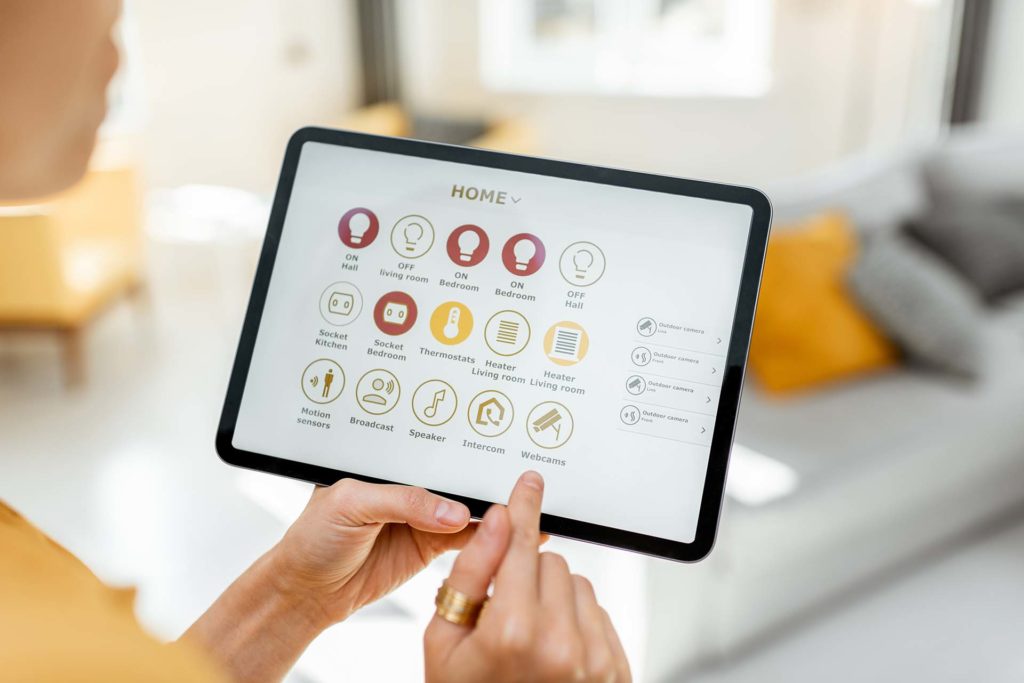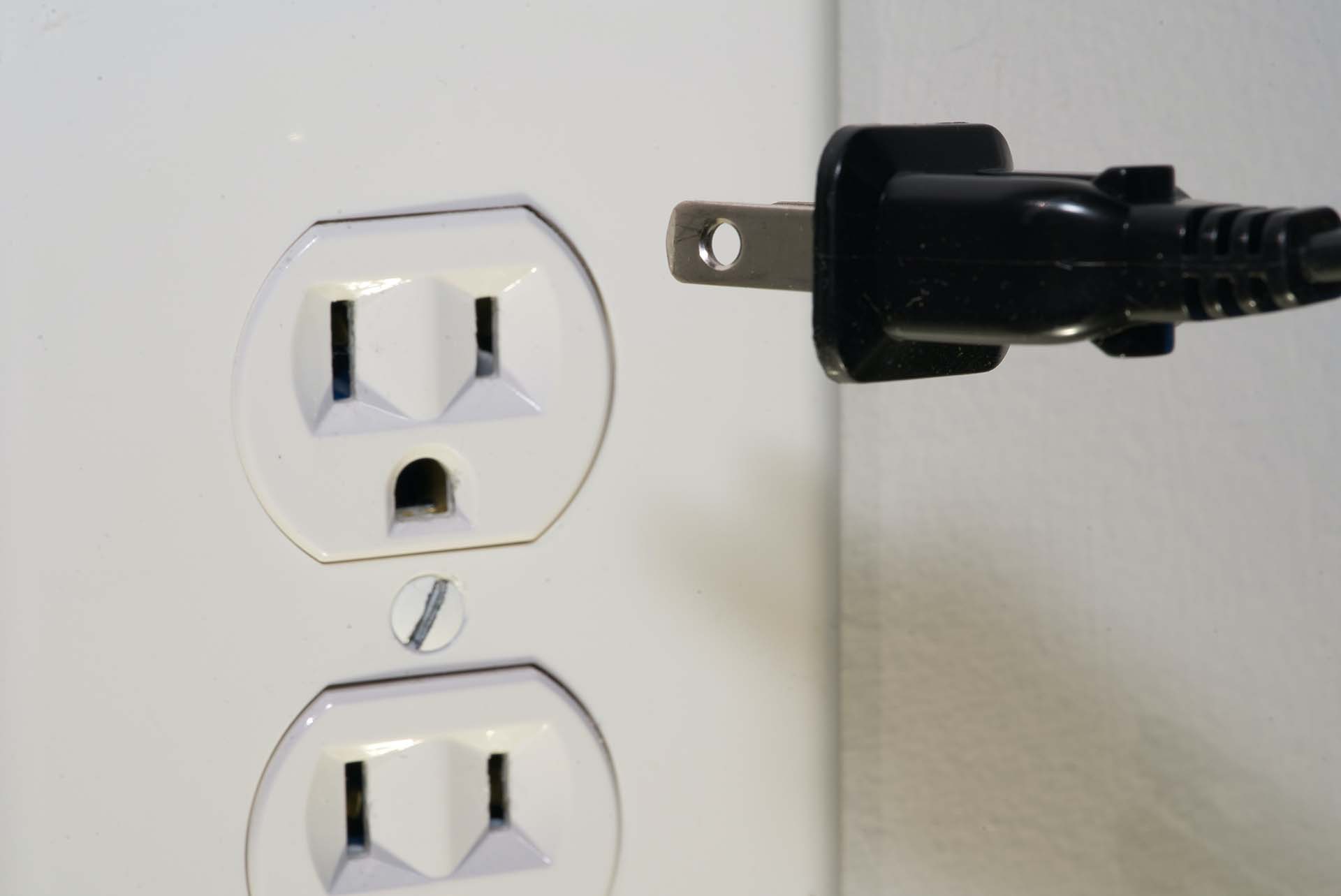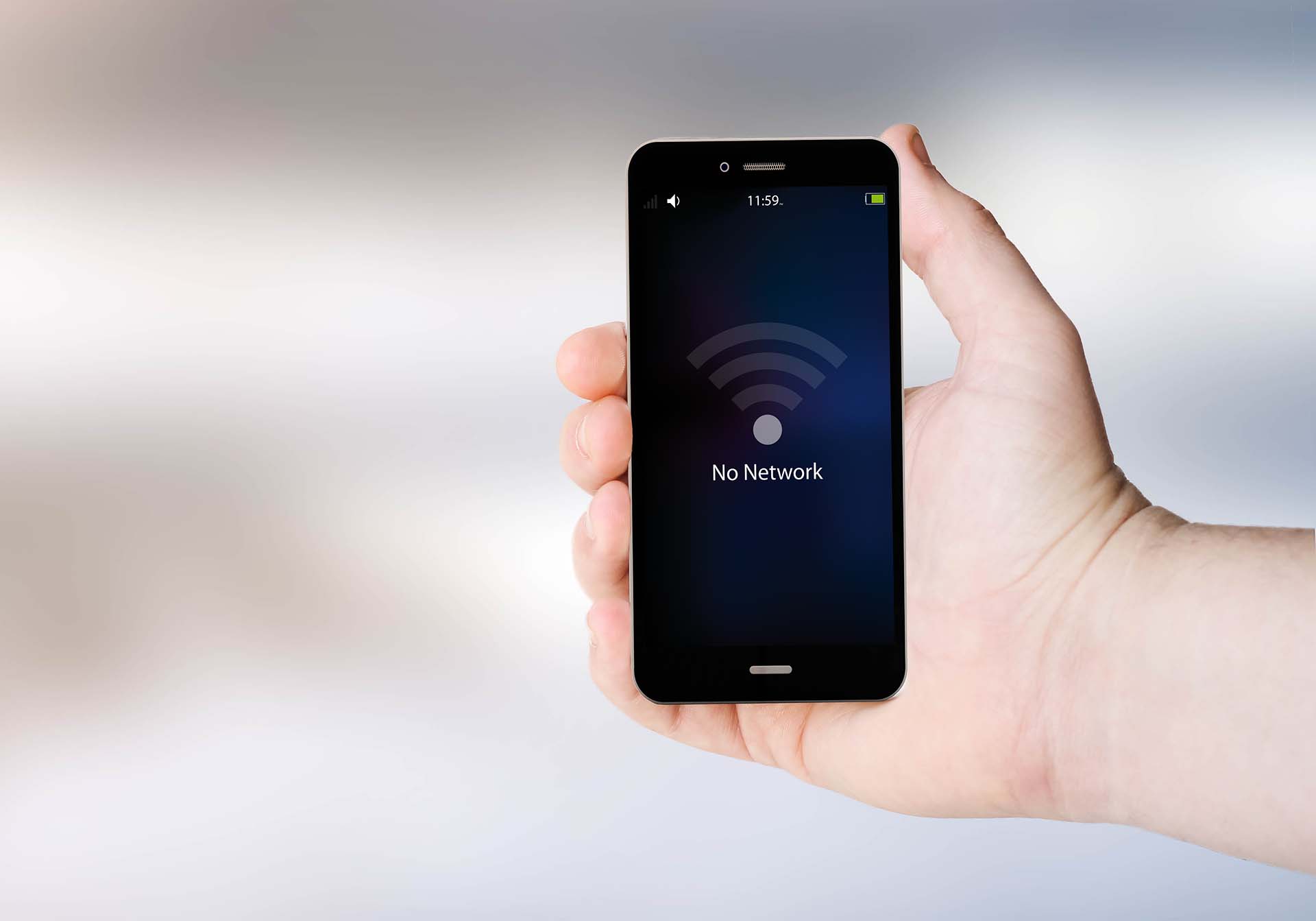Smart gadgets are created to make our lives a bit easier. Gathering intelligence about our preferences, needs, and habits was meant to improve and facilitate our daily lives. However, these features can easily turn back on us, resulting in our smart house spying on our lives. But what this spying actually implies, and how dangerous is it? Let’s find out.
How Does a Smart Home Work?
Smart homes usually imply a house automation system controlled through one hub – phone, tablet, or computer. Ideally, it provides you with remote access and control over all your connected appliances. In order for these gadgets to connect with the hub and between themselves and collect and share electronic data, they must be a part of the Internet of Things (IoT) technology.
Once data is gathered from a source, it is sent to IoT, where it will be analyzed. After analysis, valuable information will be derived and then shared with other appliances for increased efficiency. Keep in mind that IoT usually uses Cloud tech for data storing, processing, and commanding.
According to Statista, it’s estimated that there will be over 50 billion IoT-based devices in use by 2030. If you wish to find out more about the Internet of Things tech and how it affects our daily lives, take a look at the video below:
What Are the Main Benefits and Hurdles of Smart Homes?
Installing a smart house can bring plenty of advantages to its use – from automating plenty of everyday tasks, over remote controlling of separate gadgets and appliances, to energy metering and implementing smart energy consumption. It can even help you reduce the costs through automated energy reduction and manage your health habits.
However, that is what a smart house should be ideally – but these kinds of residences all over the world are facing many challenges and unsolved issues. There are many cases where these gadgets couldn’t connect properly to the Wi-Fi network (or between themselves).
Owners face programmed obsolescence or even stay locked out of their residence after an electricity breakdown. Hidden costs and demands for paid subscriptions are also a huge problem when buying such a home or a separate gadget. However, none of these problems are as dangerous as privacy leaks, which the IoT tech made possible.
Is a Smart House Design a Threat to Your Security?
Some studies show electromagnetic radiation emitted by these devices can pose a health threat, which made many wonder – is living in a smart home healthy to begin with? The World Health Organization claims that negative, even cancerogenic, effects of EMF can’t be ruled out. However, while the consequences of the prolonged exposure to EMF must be further examined, security issues a smart home system brings are proven in the past and well-known to the public.
So, what does house spying refer to? It can include everything from being listened to (and not being aware of it) over having your personal intelligence shared with third parties to malicious device usage through hacking attacks. People who reside in these homes regularly deal with these kinds of safety problems and often don’t come up as winners.
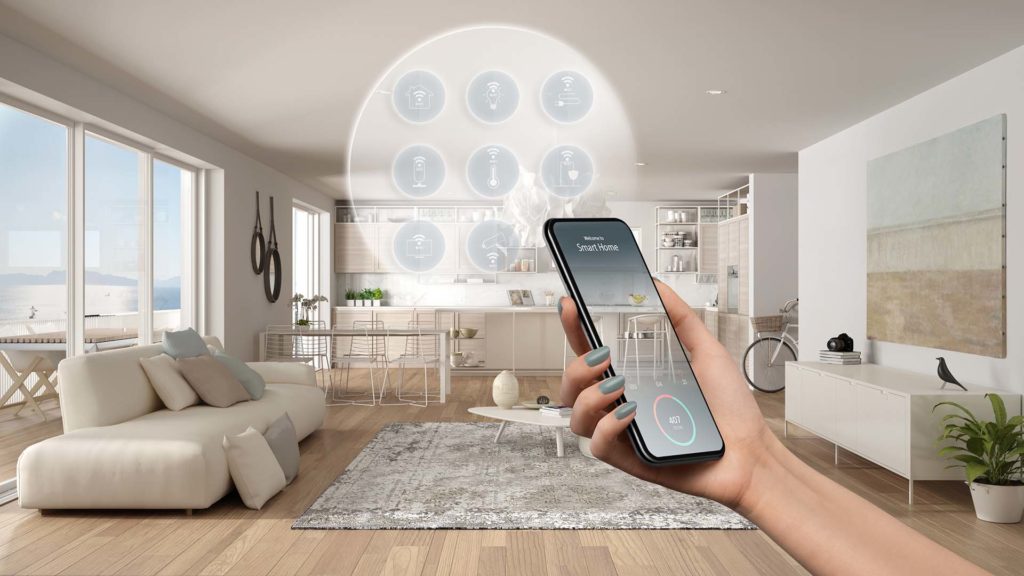
Data Collection as a Form of Smart House Spying
A study published by Imperial College London and Northeastern University in May 2021 came to the conclusion that IoT-based appliances share more information than required. They are sent to manufacturers or Cloud services but can also be used for collecting personal intelligence about consumers.
Moreover, it is shown that some of these gadgets send data to companies from the marketing field and use the collected information to create targeted ads. Take, for example, an IoT-based TV. The internet connection it uses doesn’t only serve to improve your experience. Oftentimes smart televisions report back and even sell data about your viewing habits to the interested party.
Misuse of Collected Information Is Not Uncommon
The mentioned study came to the conclusion that the majority of internet-connected gadgets share collected intelligence with companies that are not related to the manufacturer. Shared information included IP addresses, habits, and sometimes even location. These kinds of unauthorized privacy leaks are most certainly reasons for concern.
Most of this data enabled targeted advertising. However, the way they are reaching you over gadgets installed in your own house can be a bit unsettling. One of the solutions would be to get informed about what kind of information is collected by IoT-based gadgets, where it’s stored, and who has access to it. However, many current smart house companies and device manufacturers lack transparency and offer vague terms and conditions to start with.
There are other ways personal intelligence gained from a smart home automation system can be misused. One of the most famous examples of collected data abuse (that has even reached the news) is connected to one of the major IoT devices manufacturer – Amazon. Material from Ring doorbell cameras (including video footage) was stored on the company server and shared with companies like Google and Facebook. But that is not all! This information was also shared with more than six hundred police departments nationwide – without customers’ consent.
Are Smart Speakers Eavesdropping?
Whether you’re buying a completely new property or extending an existing smart house, you’ll usually be reassured that collected intelligence is processed only through automated systems and is not seen by humans. However, oftentimes that isn’t the case. Millions of smart speakers are sold worldwide, which are supposed to be activated only when the woke word is spoken – but it means that they are listening to the said word all the time.
That brings us to yet another scandal connected to the Amazon – transcribed data recorded even when the Echo wasn’t activated. Amazon representatives didn’t even try to deny it but claimed that they do transcribe a small number of randomly chosen interactions in order to improve customer experience. However, when you’re not aware of someone listening to your interactions, it can’t be seen as anything different than spying. Moreover, it is safe to assume that all similar gadgets, like Google Nest or Apple’s HomePod, function the same way.
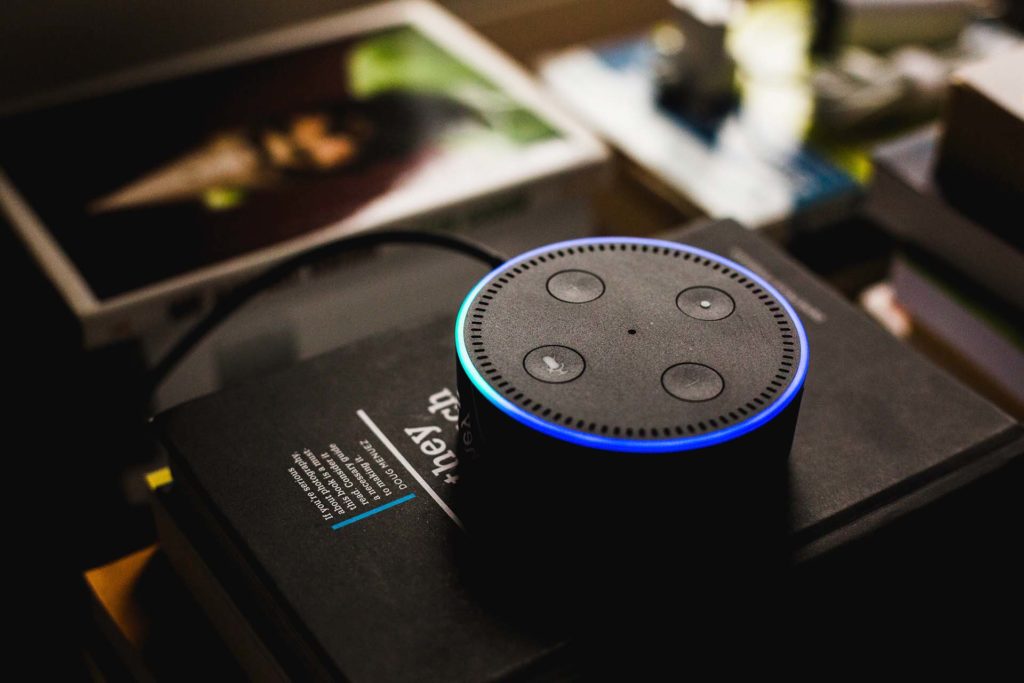
Are There Any Laws Regulating Data Collection Security?
When purchasing an IoT device or configuring a smart house, people expect these gadgets to work for them – as they should. However, what is not a part of smart house expectations is that all the information gathered can be exposed to a third-party company. To make the situation worse, most of the US states don’t have strong consumer data privacy laws, which means that device manufacturers can use, share or even sell collected information without previously informing you about it.
However, California comes as an exception with its California Consumer Privacy Act (CCPA), which gives its residents more control over shared intelligence. Stronger consumer protection laws are also implemented in the EU, with European General Data Protection Regulation (GDPR). The main advantage of these regulations is in demanded transparency – you can request to know which data is collected, how it is used, and if it’s being shared with third parties. With these acts, manufacturers are obliged to provide you with the answer.
How to Add Security and Stop Unauthorized Data Collection?
Blocking the unrequired traffic is not simple and, even when possible, can result in a device failure. However, there are some ways you can increase control over the intelligence sharing, like:
- Delete recording history on speakers,
- Stop the companies from using your recording for improvements by disabling this option,
- Consult the simple privacy overview in the Mozilla guide,
- Be sure gadgets and appliances have strong encryption,
- Use strong passwords and refrain from reusing the same one,
- Check privacy settings.
IoT-Based Devices Can Make You a Target for Hackers
Although inconvenient, manufacturers’ spying shouldn’t bring you any harm – which can’t be said for spying done by skilled hackers. Smaller companies often don’t have enough funds to prioritize the security of their products, making reaching your personal intelligence easier. However, even if collected data is encrypted in transfer, it can be easily found and seen on Cloud servers, either by the company’s employees or hackers.
The most important thing for you to remember is that any kind of information that is shared online can be hacked, especially with those IoT-based gadgets that lack security. Once a device is connected to the internet, it creates a pathway for a potential hacker to access your network and all of the data about your activities, habits, and presence. As smart homes gain in popularity and the number of IoT gadgets continues to expand, it is not something that should be easily ignored.
What Can Happen Once Your Devices Are Hacked?
The consequences of being hacked can be more or less severe, depending on the data type a hacker has access to and their intent. However, your personal conversations can be listened to, your presence and movements can be monitored, and your gadgets can be misused. Home intrusions, property damage, and data manipulation are all the risks you’ll face if your devices are connected to a network that hasn’t been sufficiently secured.
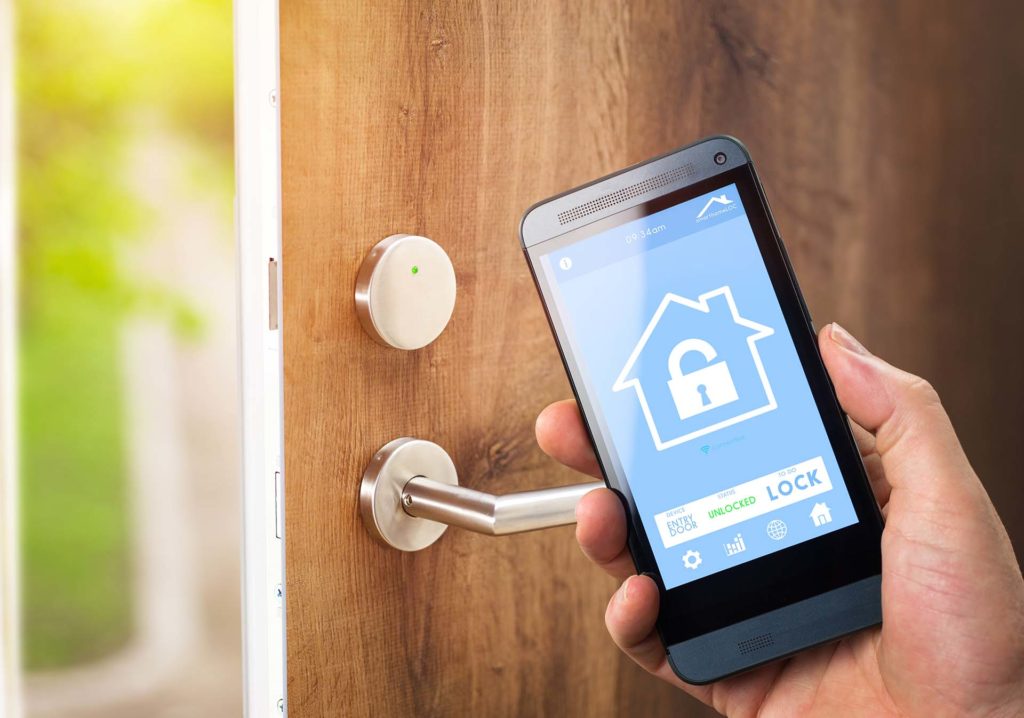
With Electric Society, You Don’t Have to Choose Between Privacy and Comfort
Increasing connectivity seemed like a good solution for a while, but it has also resulted in the loss of privacy for the residents. IoT gadgets and appliances are intended initially to make many of your daily tasks automated and simple, help you monitor power usage, and reduce energy consumption. However, to do so, they are exposing you to significant privacy problems.
Electric Society came up with the solution to all the aforementioned safety issues. With it, collected intelligence won’t be transferred through the Wi-Fi network. Moreover, your information won’t be stored in an easily accessible Cloud but at local storage and will be protected with practically unhackable blockchain technology. Therefore, all the information these devices collect will be used as intended – to gather intelligence on your preferences and habits and improve their performance according to them. With our solution, you won’t have to worry about being spied on, as that will literally be impossible.
We Offer Innovation and a Never-Done-Before Solution for a Better Smart House Experience
Although complete consumer security is one of our main goals, we also found a way to improve other aspects of smart homes. Our smart house solution means that there will be no compatibility issues, costly purchases, connection problems, and all other inconveniences current smart house residents face.
On the other hand, we maintain all the benefits smart homes bring. You’ll still be able to ease your daily tasks, reduce electricity consumption and fight energy shortage – you just won’t be facing all of the possible disadvantages. Proof of concept is already there, so all we need is a partner to help us bring this innovative idea to life. If you’re interested in the project and want to learn more, don’t hesitate to contact us.


